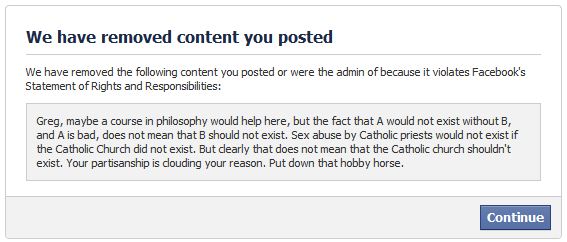Recently I posted some thoughts on what I see as the really inappropriate verbal and written attacks being carried out by professing Christians against Mark Driscoll, a pastor at Mars Hill Church in Seattle. The inevitable happened, and some people (whether here at the blog or elsewhere) suggested that maybe I would be more supportive of some of those attacks if I didn’t happen to agree theologically with mark. Really, it was suggested, I was being over sensitive when he was being criticised and giving a free pass to anything he says or does just because I’m on his “side,” doctrinally speaking. That, some thought, is why I don’t think he should be called a jerk, an ass, a slime ball, a “douchebag” and worse. It’s not that I think such conduct is wrong, I’m really just biased and over-sensitive about my theological buddies being disagreed with.
As a response to my concerns about the way Mark is being treated, this is actually a fallacious approach. It’s the old ad hominem fallacy, suggesting that my criticism of the treatment being dished out can be dismissed because of some other feature I have – like agreement with Mark on theological matters. Of course this is a mistake, and even if I agreed completely with Mark on theological matters the concerns that I raised about the conduct of fellow Christians should be taken no less seriously than if I disagreed with Mark on every point of doctrine imaginable. So this kind of reply is a non-starter.
But, as I said in the comment thread of my previous blog entry, I actually don’t agree with Mark at every point, and even some of the things for which he is now lambasted by his spiritual family are things that I disagree with him on. I just choose not to belittle him for them. One such thing is Mark’s concern over the “chickification” of Christianity, and the way he can use that concern to dismiss points of view that really have nothing to do with it. Here’s an area where I think appropriate criticism is required. Although I agree with part of what Mark – and many others for that matter – say about the feminisation of the Christian faith, I think he misunderstands and badly misapplies the principle to which he appeals, in a way that many other evangelicals also do with different principles. So to reassure people that I’m not a “Mark Driscoll sycophant,” I wanted to unpack some of the concern I have here – maybe even for the purpose of modelling the kind of criticism I think is appropriate, having already vented a bit about what’s not appropriate.
Podcast: Play in new window | Download



 At the request of a couple of listeners, this episode is a response to the documentary: Zeitgeist.
At the request of a couple of listeners, this episode is a response to the documentary: Zeitgeist.


